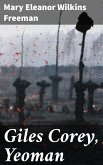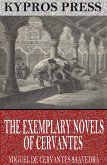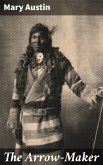In "Giles Corey, Yeoman," Mary Eleanor Wilkins Freeman weaves a gripping narrative that explores themes of tradition, fear, and the struggle for autonomy within a deeply patriarchal society. Set against the backdrop of the Salem witch trials, Freeman's novel employs a rich, evocative prose style that highlights the emotional and psychological complexities of its characters. The book serves as both a historical exploration and an introspective reflection on the consequences of mass hysteria, offering readers a profound understanding of the societal pressures that shape individual lives and choices. Freeman's nuanced portrayal of rural life in New England is both haunting and illuminating, making it a salient piece in the context of late 19th-century American literature, particularly in its examination of gender dynamics and moral dilemmas. Mary Eleanor Wilkins Freeman was a prominent voice in American literature, known for her keen observations of New England life and her focus on female characters facing societal constraints. Freeman's own experiences living in Massachusetts, along with her deep interest in the region's history and folklore, undoubtedly influenced her decision to tackle the theme of witch trials in this novel. Her past works often reflect a deep empathy for marginalized individuals, lending authenticity and emotional weight to her storytelling in "Giles Corey, Yeoman." This compelling novel is highly recommended for readers interested in American history, feminist literature, and psychological drama. Freeman's insightful exploration of the interplay between personal and societal conflicts will resonate with those who appreciate complex character studies and thought-provoking narratives. "Giles Corey, Yeoman" remains a vital contribution to the canon of American literature, inviting readers to reflect on the enduring impact of history and the timeless struggle for individuality.
Dieser Download kann aus rechtlichen Gründen nur mit Rechnungsadresse in A, B, BG, CY, CZ, D, DK, EW, E, FIN, F, GR, H, IRL, I, LT, L, LR, M, NL, PL, P, R, S, SLO, SK ausgeliefert werden.









